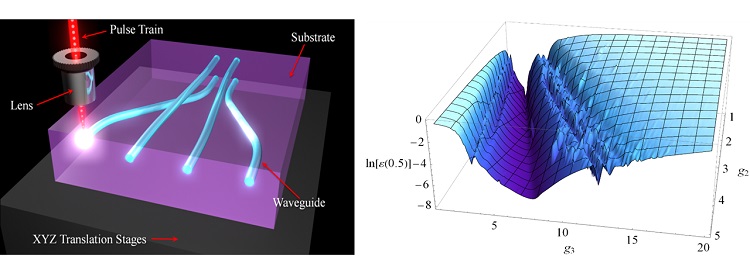St Andrews-led project receives €2.6m boost
A €2.6m project, led by researchers at the University of St Andrews, is part of a €1 billion scheme to boost quantum technologies in Europe.
The EU-funded Flagship on Quantum Technologies initiative has been set up to create a European-wide network to deliver the knowledge, technology and research necessary for a world-leading industry.
As part of the initiative, the Sub-Poissonian Photon Gun by Coherent Diffusive Photonics (PhoG), led by the University of St Andrews, is an international project which aims to deliver a compact, versatile, deterministic source of quantum light – PhoG – based on integrated waveguide networks with engineered loss, and to develop its applications in metrology and other quantum technology tasks.

Dr Natalia Korolkova (pictured), of the School of Physics and Astronomy at the University of St Andrews, said:
“We are delighted to have received this funding and to be part of this pan-European collaboration stretching from fundamental science to industrial implementations.”
PhoG is one of 20 projects selected from 140 proposals submitted to the initiative. Overall, the Flagship on Quantum Technologies initiative will involve more than 5000 researchers in academia and industry with the aim of placing Europe at the forefront of quantum innovation with funding invested over the next ten years.
Quantum technology is a comparatively young field associated with quantum mechanics – originally described more than 100 years ago by the German researcher Max Planck – being harnessed for technological applications.
It involves finding ways of controlling individual atoms, ions, solids and light quanta. A first quantum revolution paved the way for application-relevant technologies such as transistors and lasers. Now, research associations are embarking on a second quantum revolution.

The EU Flagship initiative aims to ensure that Europe is at the forefront of this second quantum revolution. In the long term, the programme will cover a broad spectrum of applications, including powerful quantum computers and quantum simulators, novel quantum sensors, and a tamper-proof quantum Internet.
Category Awards